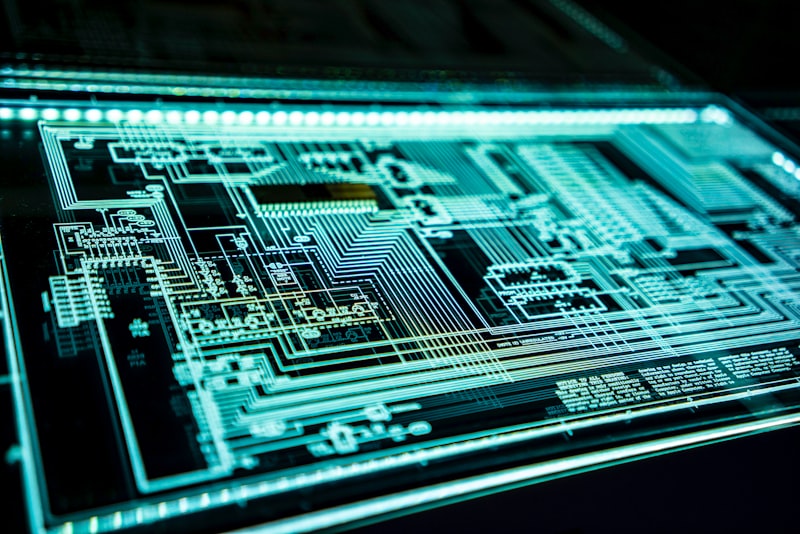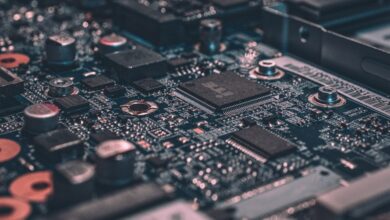Artificial Intelligence Supported Medical Diagnosis and Treatment Methods

Did you know that the field of healthcare is undergoing a revolutionary transformation? Thanks to the incredible advancements in artificial intelligence (AI), medical diagnosis and treatment methods are being revolutionized. Imagine a future where doctors have intelligent assistants by their side, helping them make accurate diagnoses and providing personalized treatment options. This is no longer science fiction; it’s becoming a reality.

Artificial intelligence has the potential to greatly enhance medical decision-making. With the ability to process vast amounts of data and identify patterns that human minds might miss, AI algorithms can assist doctors in diagnosing diseases with remarkable precision. By analyzing medical records, lab results, and even imaging scans, AI systems can quickly generate insights and recommendations, empowering healthcare professionals to make well-informed decisions.
One area where AI shines is radiology. Picture an AI system that can analyze thousands of medical images in seconds, detecting subtle abnormalities that might indicate the presence of diseases such as cancer or cardiovascular disorders. These AI-powered tools act as invaluable aids, enabling radiologists to achieve faster and more accurate diagnoses. This not only saves time but also enhances patient outcomes by catching diseases at earlier stages when they’re more treatable.
But AI doesn’t stop at diagnosis. It also plays a crucial role in treatment planning and monitoring. Machine learning algorithms can analyze large datasets of patient information, identifying trends and predicting which treatments are likely to be most effective for specific individuals. This level of personalization ensures that patients receive tailored care, maximizing the chances of successful outcomes.
Think of AI as a knowledgeable companion for doctors, providing real-time guidance based on evidence-based medicine. From suggesting appropriate medication dosages to alerting physicians to potential drug interactions and adverse reactions, AI systems ensure patient safety and improve overall healthcare quality.
The integration of AI into medical practice is not meant to replace doctors but rather to augment their capabilities. By taking over repetitive and time-consuming tasks, AI frees up healthcare professionals to focus on what they do best: providing compassionate care to their patients. It’s a partnership between human expertise and machine intelligence, with the ultimate goal of improving healthcare outcomes for all.
Artificial intelligence is transforming the landscape of medical diagnosis and treatment methods. By harnessing the power of AI, doctors can access valuable insights, enhance accuracy, and provide personalized care to patients. This exciting advancement in healthcare technology holds immense promise for the future, paving the way for more efficient, effective, and patient-centered medical practices. Welcome to the age of AI-supported healthcare – where possibilities are endless, and lives are transformed.
Revolutionary Breakthrough: AI-Powered Diagnosis Expands Medical Possibilities
Imagine a world where diagnostic accuracy is enhanced, medical errors are reduced, and patient outcomes are improved. Thanks to a revolutionary breakthrough in healthcare, this vision is becoming a reality. The emergence of AI-powered diagnosis is transforming the medical landscape, paving the way for new possibilities and advancements.
In the past, doctors heavily relied on their expertise and experience to make accurate diagnoses. However, human error and limited knowledge could sometimes lead to misdiagnoses or delayed treatments. With AI-powered diagnosis, these challenges are being overcome. By harnessing the vast potential of artificial intelligence, healthcare professionals can now access a powerful tool that complements their skills and augments their decision-making processes.
Utilizing advanced algorithms, AI systems analyze vast amounts of medical data, including patient records, lab results, and medical literature. This wealth of information enables AI to detect patterns, identify correlations, and predict potential outcomes with remarkable precision. Moreover, as AI continuously learns and evolves through machine learning, its diagnostic capabilities become increasingly refined and reliable over time.
The impact of AI-powered diagnosis reaches far beyond individual patients. It has the potential to revolutionize healthcare on a global scale. Accessible in remote areas with limited medical resources, AI can provide accurate and timely diagnoses, bridging the gap in healthcare disparities. Additionally, AI-powered systems can assist healthcare providers in handling the ever-increasing workload by automating routine tasks, allowing them to focus more on patient care.

This breakthrough also holds promising prospects for medical research. AI can swiftly analyze extensive datasets and identify subtle connections between diseases, symptoms, and treatments that may have gone unnoticed by human researchers. By accelerating the pace of discovery, AI-powered diagnosis opens doors to new treatment options, personalized medicine, and even the potential for early detection of life-threatening conditions.
The advent of AI-powered diagnosis marks a significant turning point in the field of medicine. It empowers healthcare professionals with a remarkable tool that amplifies their expertise and expands their capabilities. From improved diagnostic accuracy to enhanced patient care, AI is reshaping the way we approach healthcare, offering a future where medical possibilities are boundless. The era of AI-powered diagnosis has arrived, and its transformative impact is set to redefine the way we diagnose and treat illnesses for generations to come.
Transforming Healthcare: How Artificial Intelligence is Revolutionizing Medical Treatment
Introduction:
Imagine a future where cutting-edge technology collaborates seamlessly with human expertise to revolutionize medical treatment. This future is becoming a reality with the rapid advancements in Artificial Intelligence (AI). AI is transforming healthcare by enhancing diagnosis accuracy, streamlining patient care, and enabling personalized treatment plans. In this article, we will explore how AI is reshaping the landscape of medical treatment and paving the way for a healthier tomorrow.
Enhancing Diagnosis Accuracy:
Through machine learning algorithms and data analysis, AI systems can process vast amounts of medical information, including patient records, research articles, and diagnostic images. By recognizing patterns and identifying correlations, AI assists healthcare professionals in making accurate and timely diagnoses. With its ability to analyze data at an unprecedented scale, AI reduces diagnostic errors, leading to more effective treatments and improved patient outcomes.
Streamlining Patient Care:
AI-powered chatbots and virtual assistants are changing the way patients interact with healthcare systems. These virtual companions provide round-the-clock support, answering questions, scheduling appointments, and even providing basic medical advice. By automating routine tasks, AI frees up valuable time for healthcare providers, allowing them to focus on more complex patient needs. Moreover, remote patient monitoring systems powered by AI enable continuous tracking of vital signs, ensuring early detection of any concerns and facilitating proactive interventions.
Enabling Personalized Treatment Plans:
Every individual is unique, and so should be their medical treatment. AI algorithms can analyze massive datasets to identify specific trends, genetic markers, and treatment responses. By integrating personal health data with this knowledge, AI enables the creation of personalized treatment plans tailored to each patient’s needs. Whether it’s predicting a patient’s response to a particular medication or recommending targeted therapies, AI empowers healthcare providers to offer precision medicine that maximizes effectiveness and minimizes side effects.
Conclusion:
Artificial Intelligence is rapidly transforming the healthcare industry, offering immense potential to improve medical treatment and patient care. From enhancing diagnostic accuracy to streamlining patient care and enabling personalized treatment plans, AI is revolutionizing healthcare as we know it. As technology continues to advance, it is crucial for healthcare professionals to embrace the collaborative power of AI and ensure its responsible integration into medical practice. By harnessing the full potential of AI, we can usher in a future where healthcare is more precise, accessible, and ultimately, life-changing for patients worldwide.
Empowering Doctors: Cutting-Edge AI Technologies Enhance Medical Diagnoses
Imagine a world where doctors have access to advanced technologies that augment their diagnostic abilities, leading to faster and more accurate medical diagnoses. Thanks to cutting-edge artificial intelligence (AI) technologies, this vision is becoming a reality. In recent years, AI has emerged as a powerful tool in the field of medicine, revolutionizing the way healthcare professionals diagnose and treat patients.
One of the key areas where AI is making a significant impact is medical diagnosis. With the ability to analyze vast amounts of patient data, AI algorithms can quickly identify patterns, detect anomalies, and provide valuable insights to assist doctors in making informed decisions. By leveraging machine learning techniques, AI systems can continuously learn from new data, improving their diagnostic accuracy over time.
AI-powered diagnostic tools enable doctors to interpret medical images, such as X-rays, CT scans, and MRIs, with greater precision. These technologies can accurately detect abnormalities that might be missed by the human eye, ensuring early detection and timely intervention. Moreover, AI algorithms can rapidly compare a patient’s symptoms and medical history against a vast database of cases, assisting doctors in diagnosing rare diseases or complex medical conditions.
Another remarkable aspect of AI technology is its ability to enhance the speed and efficiency of diagnoses. Traditionally, doctors had to spend significant amounts of time analyzing patient data and conducting manual tests. However, with AI, routine tasks can be automated, freeing up valuable time for physicians to focus on critical decision-making and providing personalized care. This not only improves the overall efficiency of healthcare delivery but also reduces the burden on doctors, resulting in better patient outcomes.
Furthermore, AI technologies empower doctors by acting as reliable second opinions. In challenging cases where multiple factors need consideration, AI systems can offer alternative perspectives based on comprehensive analyses of similar cases. This collaborative approach between doctors and AI algorithms strengthens diagnostic accuracy and instills greater confidence in the treatment plans.

The integration of cutting-edge AI technologies is empowering doctors and reshaping the landscape of medical diagnoses. Through enhanced accuracy, increased efficiency, and valuable insights derived from massive datasets, AI is revolutionizing healthcare. As we continue to unlock the potential of AI, we can look forward to a future where doctors have even greater tools at their disposal, enabling them to provide more precise diagnoses and deliver optimal care to patients worldwide.
AI Takes the Lead: Unveiling the Future of Personalized Medicine

Imagine a world where healthcare is tailored to your unique genetic makeup, lifestyle, and medical history. A world where diseases are detected and treated at their earliest stages, increasing the chances of successful outcomes. This is the future of personalized medicine, and it’s being revolutionized by artificial intelligence (AI).
Personalized medicine aims to provide individualized care based on a person’s specific characteristics. It goes beyond the traditional one-size-fits-all approach, recognizing that each patient is different and may respond differently to treatments. With the advent of AI, personalized medicine has reached new heights.
AI utilizes advanced algorithms and machine learning to analyze vast amounts of data, including genomic information, clinical records, and lifestyle factors. By processing this wealth of information, AI can identify patterns and correlations that would be nearly impossible for humans to detect. These insights allow healthcare professionals to make more accurate diagnoses, predict disease risks, and develop targeted treatments.

One area where AI is making significant strides is cancer care. Traditional cancer treatments often involve a combination of chemotherapy, radiation, and surgery. However, these treatments can have severe side effects and may not be equally effective for all patients. AI can analyze genetic data from tumors to determine the most suitable treatment options, optimizing outcomes while minimizing side effects.
Another promising application of AI in personalized medicine is the management of chronic diseases such as diabetes or cardiovascular conditions. By continuously monitoring patients’ vital signs and collecting real-time data, AI-powered systems can alert healthcare providers to any deviations from normal parameters. This early detection enables timely interventions, preventing complications and improving patients’ quality of life.
But AI’s impact extends beyond the doctor’s office. It has the potential to empower individuals to take charge of their own health. Wearable devices equipped with AI algorithms can track vital signs, sleep patterns, and physical activity, providing personalized recommendations for better health. This technology acts as a virtual health coach, nudging us towards healthier choices and helping us achieve our wellness goals.




